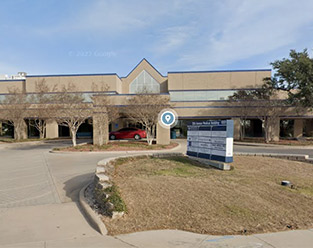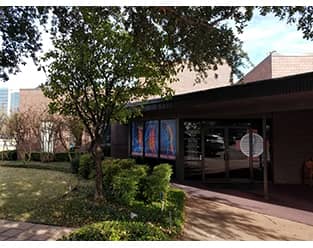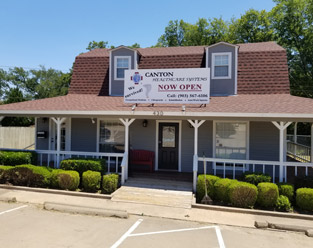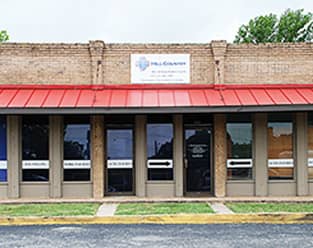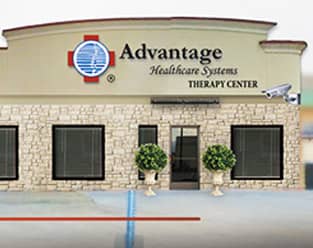 A traumatic brain injury (TBI) is often the most serious and overlooked consequence of a car crash, workplace incident, or other accident. Recognizing and diagnosing a TBI early is crucial for proper treatment and long-term recovery. At Advantage Healthcare Systems, our expert staff has the training and experience necessary to evaluate and effectively treat TBIs.
A traumatic brain injury (TBI) is often the most serious and overlooked consequence of a car crash, workplace incident, or other accident. Recognizing and diagnosing a TBI early is crucial for proper treatment and long-term recovery. At Advantage Healthcare Systems, our expert staff has the training and experience necessary to evaluate and effectively treat TBIs.
What Is a Traumatic Brain Injury (TBI)?
A TBI happens when a sudden impact, jolt, or penetrating injury disrupts normal brain function. A traumatic brain injury can take many forms, from a mild concussion to severe brain trauma, with wide-ranging physical, emotional, and cognitive effects.
Common causes of traumatic brain injury include:
- Car, truck, or motorcycle accidents
- Slips, trips, and falls
- Workplace accidents
- Assaults or physical violence
Common Symptoms of a TBI
Not all brain injuries present immediately. Some symptoms may appear hours or days after the incident.
Physical Symptoms:
- Persistent headache–You should expect some type of headache after a traumatic brain injury. If it doesn’t go away after a couple hours, it may indicate a more serious injury.
- Excessive nausea or vomiting–It’s not uncommon to experience nausea immediately following a TBI, but it should dissipate within a short period of time.
- Uncharacteristic and excessive fatigue or drowsiness–When you’ve suffered any type of trauma, your body requires energy to heal, which can make you tired. If your fatigue is excessive and persists, you may have suffered a significant TBI.
- Dizziness or loss of balance
Cognitive or Sensory Symptoms:
- Confusion or memory problems
- Difficulty concentrating
- Blurred vision or sensitivity to light
- Changes in sleep patterns, including both insomnia and excessive fatigue
Emotional or Behavioral Symptoms:
- Mood swings or irritability
- Anxiety or depression
- Impulsive behavior
How Do Healthcare Professionals Diagnose TBIs?
TBI diagnosis requires a careful blend of clinical examination, patient history, and diagnostic imaging. Here’s how trained professionals approach the process:
1. Initial Medical Evaluation
The diagnostic process begins with a complete physical and neurological evaluation, during which healthcare providers examine:
- Level of consciousness
- Pupil reaction
- Motor coordination
- Speech and response time
- Memory recall and orientation
2. Glasgow Coma Scale (GCS)
The GCS is a tool that doctors use to assess the severity of a brain injury. It evaluates your ability to open your eyes, as well as your verbal and motor responses, all on a scale of 3 to 15:
- 13–15: Mild TBI (e.g., concussion)
- 9–12: Moderate TBI
- 3–8: Severe TBI
3. Neuroimaging Tests
While imaging technologies are typically unable to definitively diagnose a TBI, they can help identify bleeding, swelling, fractures, or certain types of structural brain damage.
Common tests include:
- CT (Computed Tomography) Scan: A CT scan detects bleeding, contusions, or skull fractures.
- MRI (Magnetic Resonance Imaging): More detailed than a CT scan, an MRI can be useful for detecting subtle or delayed injuries, especially when you have suffered a concussion.
- Diffusion Tensor Imaging (DTI): An advanced MRI technique that maps white matter damage, a DTI can help detect traumatic axonal injuries, a type of brain injury where the axons — the long, thread-like parts of nerve cells (neurons) — are damaged or torn.
- Functional MRI (fMRI) or Positron Emission Tomography (PET) Scans: These are used in some cases to evaluate brain activity and metabolic changes.
4. Cognitive and Neuropsychological Testing
TBIs can impair memory, processing capabilities, language skills, and executive function. In the aftermath of a TBI, a cognitive test may be used to assess:
- Short and long-term memory
- Attention span and focus
- Problem-solving ability
- Verbal comprehension
5. Symptom Monitoring Over Time
Because TBI symptoms can either worsen or improve, continued observation is essential. There are certain things to do after being diagnosed with TBI. Patients may require follow-up appointments, repeat scans, or behavioral assessments to monitor progress and ensure the most effective treatment.
Why Early Diagnosis Matters
Delaying diagnosis can lead to chronic pain, emotional instability, cognitive decline, and permanent disability. Early detection of a TBI allows for:
- Faster symptom relief
- More treatment options
- Reduced risk of long-term complications
- Customized rehabilitation plans
When To Seek Medical Help
You should seek immediate medical attention if you notice:
- Loss of consciousness
- Persistent headaches
- Repeated vomiting
- Slurred speech or vision changes
- Seizures
Read Also: Headaches After a Traumatic Brain Injury
Contact Advantage Healthcare Systems for a TBI Evaluation
If you suspect that you might have a traumatic brain injury (TBI), early evaluation can be essential for effective recovery. At Advantage Healthcare Systems, our expert clinicians provide fast, accurate diagnoses and evidence-based treatment options.
Schedule your consultation today by calling 877-487-8289 or reaching out to us online to begin your path to brain health and recovery.

